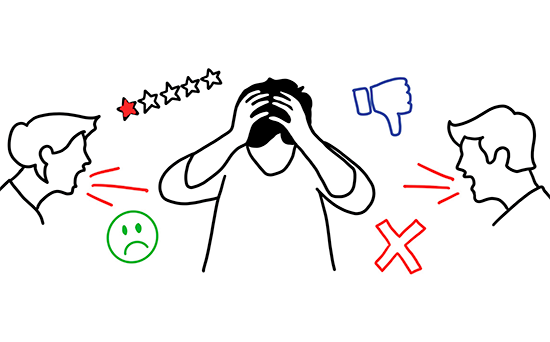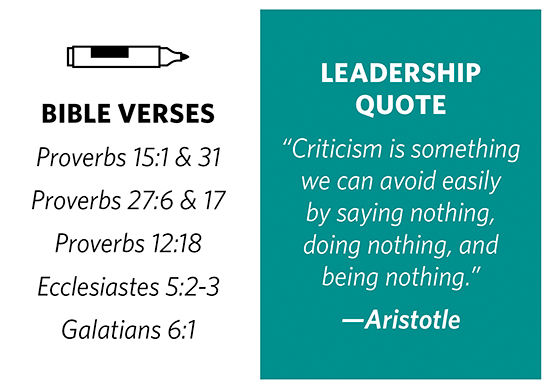
June-July 2022
Congregation on Call
------------------
|





The column "Leadership Whiteboard" provides a short visual leadership coaching moment. It introduces and explains a new sketch in each issue, provides leadership coaching for further development, and shares a leadership quote and recommended book.
The Role of Critics
An effective method of leading discussion regarding a volatile topic is something called flip the room. When the group is divided on what path to take or decision to make, have each side argue their perspective for 10-15 minutes. Then flip the room and ask each side to adopt and argue the opposing view, even if a devil's advocate view. For this to work effectively, the participants must argue with the same level of passion and points as if they believed the contrarian view. But what about the one critic?

While leaders may demonize a person who disagrees, criticizes, or asks tough questions, ironically we never view ourselves negatively when we ask others tough questions. Let me challenge all of us, especially myself, to remember the real value of the critic's role. Biblically, to guard the reputation of another, first offer criticism privately. Setting aside the etiquette of the how, let’s examine the why of our critics.
True constructive criticism comes from a place of concern. Therefore, before we criticize our critics, let’s take time to hear why they feel strongly about the issue. Talk with critics when possible to ask clarifying questions about the heart of the issue. Understand criticism provides accountability. We are never above having ideas, methods, and beliefs called into question. Like discipleship, when our faith is tested, if what we believe is solid enough, we can defend it. Misplaced criticism often reinforcees others' belief in your approach when providing a heartfelt reply. Critics keep us humble and prepared.
I’ve had my share of criticism, and it provides tension at best, irritation at worst. But, true leaders can handle good and bad criticism. I don’t detest the role when I am the critic, because I believe I am right. In contrast, I must extend others the same courtesy when they challenge me. Even when we think the critics are wrong, please know their role is helpful, especially when done in the right way. Be cautious how your handle your critics, because, at other times, we are the critics.

|
|

